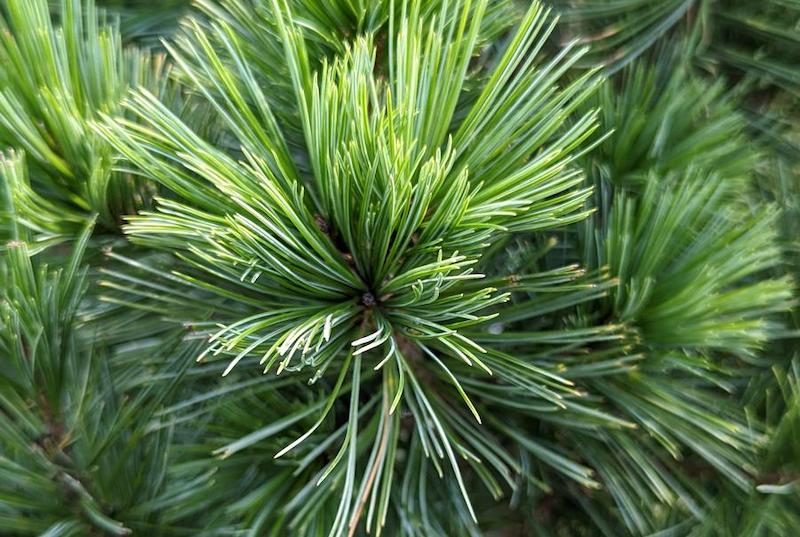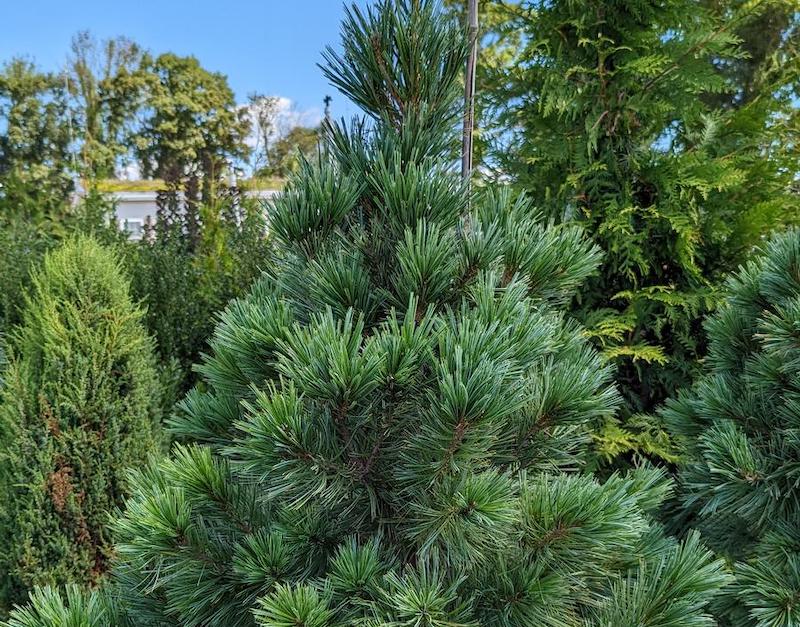Fertilizer is an important consideration when caring for pine trees, Pinus sp. These evergreen plants do not need to be fertilized as often as deciduous trees. Additionally, several species of pine trees are native, which means they do not often require additional nutrients. Newly planted pine trees also do not need fertilizer, as it can speed up aboveground growth at the expense of root development. Fertilizer application may be necessary to help the tree recover after significant damage from pests, diseases, or wind. Similarly, pine trees growing in less than optimal conditions may benefit from fertilizer, such as those growing on overly poor soil. Fertilizer can stimulate growth in trees experiencing periods of slow, delayed growth, especially for younger pine trees.

How to Fertilize Pine Trees
Pine trees should be fertilized if soil tests indicate a nutrient deficiency. Soil tests can be obtained from your local extension office. To prevent burn, deeply water your pine trees before applying fertilizer, especially if the soil is dry. Apply fertilizer per label instructions, working it into the soil around the drip line of the tree. The pH of your soil will also determine the availability of plant nutrients. Pine trees generally prefer to grow in slightly acidic to neutral soils. Based on your soil test results, lower or raise the soil’s pH by incorporating amendments such as aluminum sulfate or lime, respectively. Remember, it is much easier to add nutrients to the soil than it is to remove them, so always test your soil before adding fertilizer or other amendments.
Best Time To Fertilize Pine Trees
The best time to fertilize pine trees is in early spring, once per year. Not only will this aid in the expansion of fresh shoot tips, it will also help protect new growth from harsh winter weather later in the season. If fertilizer is applied in summer, a flush of new growth can occur. This fresh growth will not have enough time to fully develop before cold temperatures of fall and winter arrive, making it more prone to damage and dieback. If needed, a slow-release fertilizer can be added in late summer or fall. This will delay rapid spurts of growth while still providing nutrients to the plant.

Best Fertilizer For Pine Trees
A granular, slow-release fertilizer is the best option for fertilizing pine trees. Several formulations designed for evergreens are available. An organic granular fertilizer such as Espoma Evergreen-Tone 4-3-4 will provide a slow-release, well-balanced supply of nutrients in addition to beneficial soil microbes.
Pine Tree Fertilizing Tips
- Take a soil test before making any amendments
- Fertilize once per year in early spring
- Make sure soil is moist before applying fertilizer
- Slow-release, granular fertilizers designed for evergreens work best
Warnings
-Always wear protective gloves and a face mask when handling chemical fertilizers.
-Closely follow all directions and storage guidelines that are on the fertilizer label.
 |
Lauren Youngcourt - Published 03-22-2023 |
